Being an RA at Brookings | How to Apply | Tips for Applying | Testimonials | FAQ | Apply now!
The Economic Studies (ES) program at Brookings is committed to investing in the next generation of economic policy experts. Each year, ES employs approximately 20 research assistants for one or two year appointments. We aim to recruit top talent with diverse backgrounds and perspectives to work on emerging and critical policy issues and offer innovative policy recommendations to improve the nation’s economic future. Economics Studies welcomes and celebrates diversity in all its forms. We welcome applications that reflect a variety of backgrounds based on ideology, race, ethnicity, religion, gender, sexual orientation, gender identity or expression, disability, veteran status, and first generation college-goers.
Research Assistants in ES support experts as they address obstacles to long-term economic growth and opportunity. Positions are entry-level and involve data analysis, fact checking manuscripts, statistical analysis, literature searches and reviews, and summarizing research results for incorporation into working papers and project publications. Actual duties will vary depending on the particular project needs of the scholars or centers to whom the RA is assigned. Our staff work in every area of economic policy, including:
| Banking and Finance | Labor Economics |
| Poverty, Social Mobility, and Welfare | Macroeconomics |
| Energy and Climate Economics | Monetary Policy |
| Fiscal Policy | Regulatory Issues |
| Health Economics | Tax Policy |

What’s it like to be a Brookings Econ RA?
Being an RA at Brookings | How to Apply | Tips for Applying | Testimonials | FAQ | Apply now!
Research assistants play an essential role in the Economic Studies program. Working side by side with economists, RAs develop strong quantitative analysis, critical thinking, and writing skills – marketable skills useful for pursuing career opportunities and advanced studies in a variety of fields. Through on the job experience, attending seminars, training and tuition reimbursement programs, RA positions provide you with a solid foundation for whichever career path you pursue. In addition, RAs can expect:
- In-house learning opportunities – past offerings include seminars from ES scholars presenting their newest research, staff-led opportunities to build presentation skills, peer support for grad school prep, workshops on equitable hiring practices and more!
- Career exploration with ES’s Ask Me Anything series, where early to mid-career staff get to chat with interesting people about their work and career and how they got where they are.
- Ample opportunity to attend public lectures and events hosted by ES scholars and Brookings other research programs, Foreign Policy, Governance Studies, Global Economy & Development, and Metropolitan Policy.
- Abundant networking opportunities—both formal, via mentoring programs and organizations such as the Brookings Data Network or Women’s Impact Network, and informal, such as trivia nights, bake-offs, and happy hours.
- Brookings affinity groups – a voluntary, employee-led network of individuals who regularly engage in learning and community-building activities around shared, diversity-related interests.
- Access to our generous Brookings benefits, including the Workday Learning training platform, tuition assistance, and the employee assistance program. In addition, all Brookings employees receive five weeks of paid vacation annually.
- A supportive place to launch your career or graduate education. Some RAs go on to top graduate schools in economics, law, public policy, and political science. Others take exciting jobs at government agencies (e.g., the CEA, CBO, and Federal Reserve), nonprofits, and private consulting firms.
How to Apply
Being an RA at Brookings | How to Apply | Tips for Applying | Testimonials | FAQ | Apply now!
RAs typically begin during the summer months but are selected during two main recruitment cycles in the fall and spring.
Fall Recruitment Cycle
- Completed applications accepted from August – mid-October. Be sure to check the job posting directly for actual application deadline.
- Phone interviews conducted from mid-October – mid-December
- Offers are extended on a rolling basis following the deadline and continue until the conclusion of the fall cycle.
Spring Recruitment Cycle (if needed)
- Completed applications accepted December – February
- Phone interviews conducted from mid-February – mid-March
- Offers are extended on a rolling basis following the deadline and continue until the conclusion of the spring cycle.
Off-Cycle Recruitment
- Occasionally we have immediately available positions during the year when project needs arise. Keep an eye on our job postings to stay up to date with the latest opportunities.
RA positions are best suited for those with an undergraduate degree in Economics, Mathematics, or other social sciences with a minor in Economics. Candidates should be prepared to submit:
- Resume
- Cover letter
- Transcripts from undergraduate institution (and graduate, if applicable). Copies or unofficial transcripts are OK
- Two letters of recommendation from professors or past employers/supervisors (at least one letter of recommendation should be academic, the second can be academic or professional)

Tips for applying
Being an RA at Brookings | How to Apply | Tips for Applying | Testimonials | FAQ | Apply now!
Read the job posting carefully and be sure you are submitting all required materials. Two written letters of recommendation are required, not just a list of your references. Undergraduate transcripts are required, even if you have a master’s degree. If submitting an international transcript, it is important to include a grade key. You must write a cover letter. By submitting a complete application, you can ensure your application will receive full consideration.
Be curious! In addition to quantitative and writing skills, our most successful RAs are intellectually curious and take advantage of our rich environment to learn from the experts. Use your cover letter wisely! Some ideas:
- Why do you want to work at a think tank? At Brookings? In Economic Studies?
- Tell us about your thesis or another economics research project you’ve done.
- What economic policy topics are you interested in studying, and why? You don’t have to have a preferred topic, but if you’re passionate about tax policy or labor economics, this is your chance to tell us.
The work you’ll do here is detail oriented—show us that you pay attention to the details. For example, lots of people get our name wrong—we’re the Brookings Institution, not “institute.” Take time to proofread carefully, or better yet, ask someone else to proofread for you. If selected for a phone interview, do your homework. Look around the website and investigate our research. Be familiar with the work of the Center or scholar you’ll be talking to.
Testimonials
Being an RA at Brookings | How to Apply | Tips for Applying | Testimonials | FAQ | Apply now!
“I will always be grateful for my time at Brookings. I joined the Economic Studies program as the world reeled from the first wave of the COVID-19 pandemic. From the start, I had the opportunity to dive into dynamic projects responding to the rapidly changing crisis in real-time. This focus on impact persisted throughout my time here—centers engaged in challenging, in-depth research, but always with an eye towards policy relevancy and the real people their work would affect. Beyond the research, what made Brookings such a special place to work was the collaborative environment. Scholars across the institution, often giants in their respective fields, take a genuine interest in research assistants’ ideas and goals. I wanted to apply my economics background to the interdisciplinary world of urban planning, and I found invaluable mentorship both within my own center and across other Brookings programs. As I move forward in my career, I will bring with me not only new skills and experiences, but also lifelong relationships.”
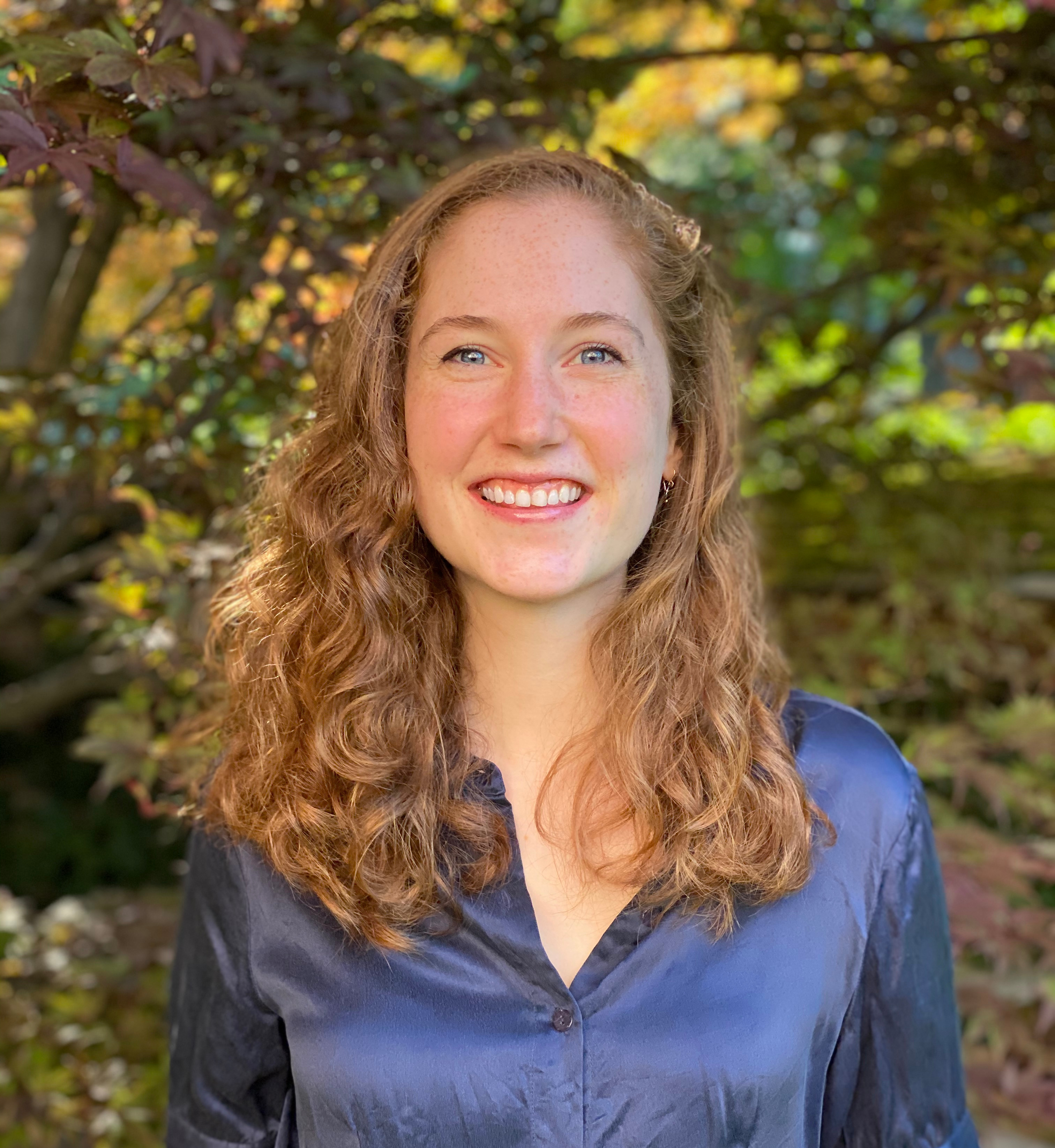 Sophia Campbell
Sophia Campbell
At Brookings: RA with the Hutchins Center on Fiscal and Monetary Policy, 2020-2022.
After Brookings: Research Analyst at HR&A Advisors.
“My time at Brookings helped me explore my research interests and learn how to work on quantitative research in a collaborative environment. I’ve worked on numerous projects related to fiscal and monetary policy while picking up programming skills and knowledge of statistical methods. During the early stages of the pandemic, I was exposed to timely and impactful policy debates and learned more than I could’ve imagined about the economy by analyzing the effects of pandemic fiscal policy. Moreover, the friendships I made while at Brookings were truly special, and I will miss getting lunch with my fellow research assistants.”
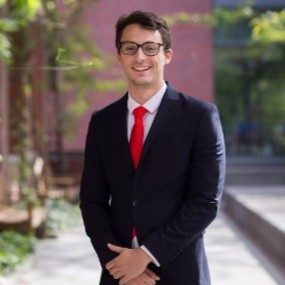 Manuel Alcala Kovalski
Manuel Alcala Kovalski
At Brookings: RA with the Hutchins Center on Fiscal and Monetary Policy, 2019-2022
After Brookings: Data Scientist at the Urban Institute
“Brookings provided me the space to develop my research skills in the highest quality environment. I enjoyed opportunities to learn from top scholars—whether through working with fellows on my own team or attending events and seminars across the institution. In addition to building my technical skills, I also learned about the role of research in the policymaking process. Now that I work in a policy implementation (rather than a policy research) role in state government, I’m able to leverage my quantitative analysis capabilities and a value for data-driven policy that I gained from my time at Brookings. I’d recommend working at Brookings as an excellent launchpad for a variety of career paths in public policy.”
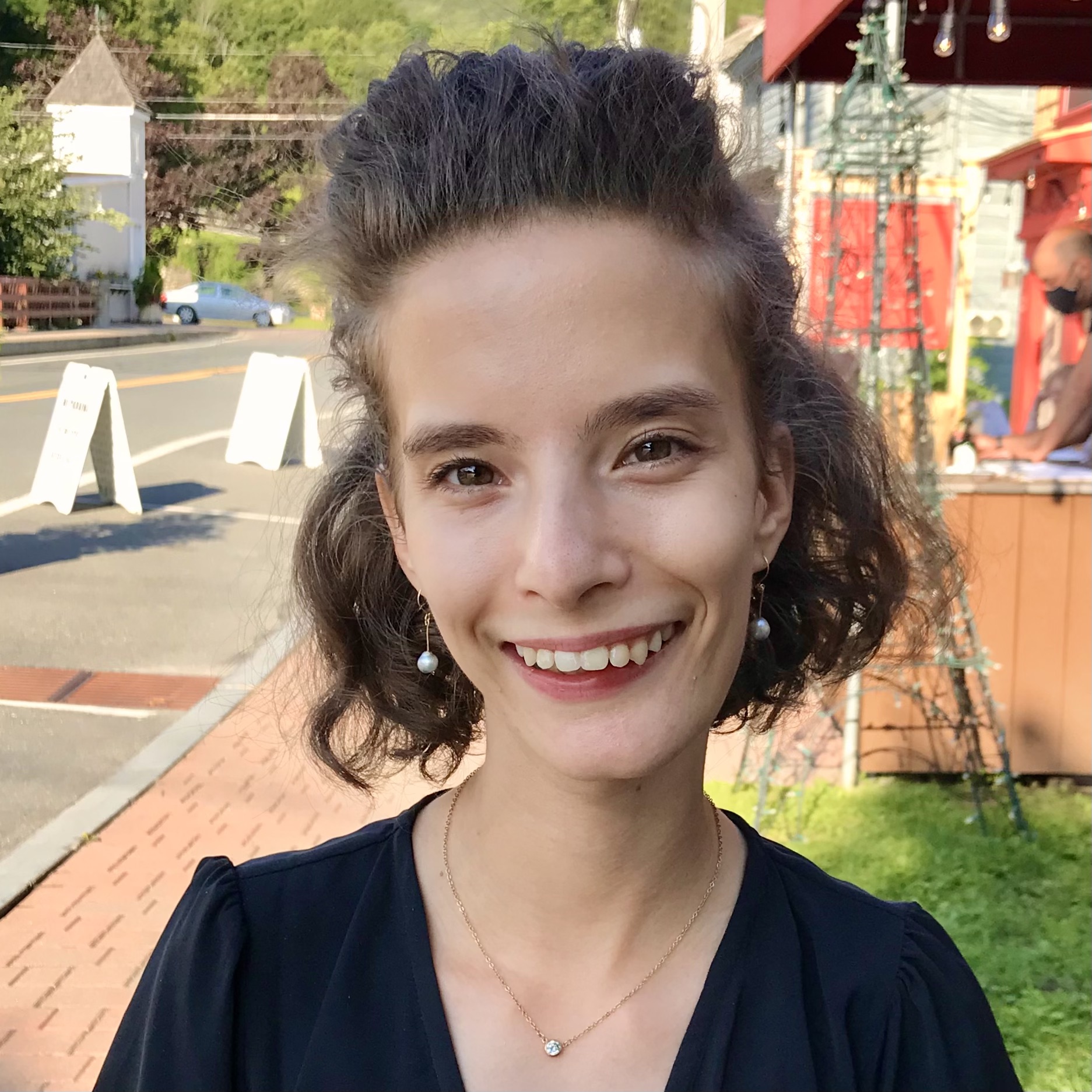 Emily Moss
Emily Moss
At Brookings: RA with The Hamilton Project, 2019-2021
After Brookings: Policy and Programs Manager, Massachusetts Department of Housing and Community Development
“Starting my career as a research assistant at Brookings allowed me to work at the intersection of policy and economics in a way that isn’t possible in any other setting. From analyzing survey data and updating economic forecasting models to gathering relevant academic literature and drafting policy briefs, each day offered opportunities to broaden my research and analytical skills as well as the chance to apply these to public policy issues. At Brookings you’re also able to see your work contribute to meaningful projects and impact current conversations in the policy space. Economic Studies is an especially great environment for RAs—you get to know a wonderful group of people who share passions for research and policy within your cohort, and you also have access to an incredible array of events and experts. The scholars in Economic Studies are generous with their time and care about your research interests, academic goals, and future career. My experience at Brookings directly led me to my next positions and continues to inform my career path.”
 Victoria Johnson
Victoria Johnson
At Brookings: RA with the Tax Policy Center, 2018-2019
After Brookings: Regulatory Data Analyst, Federal Reserve Bank of San Francisco
“Working at Brookings was such a rewarding and fulfilling experience. Not only are you surrounded by some of the world’s most inquisitive and brilliant minds, but you actually become part of the Brookings community and are able to learn from and contribute to today’s pressing policy research solutions. I was blessed to work for incredible senior fellows who were skilled researchers and effective managers, but also supportive mentors who showed me how to make policy research effective and accessible, pushed me to trust my instincts and training, and encouraged me as I developed as a researcher and writer. Add the friendliness and collegiality of Economic Studies and it’s no surprise that I was excited to come to work each day. I encourage any aspiring researcher to work at Brookings—the skills, experiences, and relationships you develop here will prepare you for an influential and meaningful policy research career.”
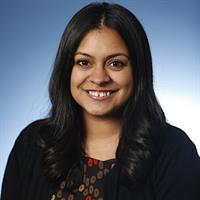 Marcela Cabello
Marcela Cabello
At Brookings: Research assistant with the USC-Brookings Schaeffer Initiative for Health Policy, 2015-2018. Research analyst in Economic Studies, 2019-2020.
After Brookings: MPA student at Syracuse University’s Maxwell School of Citizenship and Public Affairs.
“Working at Brookings gave me the opportunity to apply technical research and analytical skills to a broad array of pressing policy issues that affect economic mobility and income inequality in the United States. I was able to meaningfully contribute to and author published research projects with the flexibility to pursue my own research interests, take academic coursework, and learn from the brilliant mentorship of some of the country’s brightest and esteemed intellectual leaders.”
 Eleanor Krause
Eleanor Krause
At Brookings: RA with the Center on Children and Families, 2016-2018
After Brookings: Ph.D. candidate in Public Policy at Harvard University
“My time as a research assistant at Brookings helped me choose a career path while developing my research skills in a welcoming, collaborative work environment. I learned about so many aspects of policy through daily projects and events ranging from internal lunches to highly-attended public panels. Now as a student at Yale Law, I frequently draw from my Brookings experience in class discussions and ideas for papers. In addition to the practical skills development, I actively enjoyed spending time with my colleagues. My group of research assistants ate lunch together daily and spent time together outside of work. The scholars I worked with cared about my interests and provided constructive, substantive feedback on every assignment. Brookings opened up a world of opportunities for me and was truly a formative experience.”
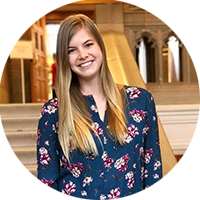 Megan Mumford
Megan Mumford
At Brookings: RA with the Hamilton Project, 2015-2017
After Brookings: Enrolled at Yale Law School
“As a research analyst at the Brookings Institution, I’ve enjoyed numerous opportunities for personal and professional growth. The convening power of the institution, the depth of knowledge of the scholars, and the collegial environment create a unique intersectionality of ideas. In this way, Brookings has allowed me to learn and engage in a broad range of conversations about policy and economics that would not have been possible elsewhere. Specifically, I’ve had the opportunity to work on technical and complex research projects while also communicating policy succinctly and effectively to the general public. For junior staff, such a diverse and balanced workplace offers an opportunity for emerging leaders to find their voice.”
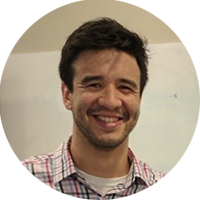 Michael Ng
Michael Ng
At Brookings: Research Analyst with the Hutchins Center on Fiscal and Monetary Policy, 2017-2019
After Brookings: MBA from the Kellogg School of Management of Northwestern University
Frequently Asked Questions
Being an RA at Brookings | How to Apply | Tips for Applying | Testimonials | FAQ | Apply now!
Where should I send confidential letters of recommendation?
Confidential letters may be emailed directly by your recommenders to Jennifer Ambrosino, but must be received by the application deadline. It is your responsibility to follow up with your recommenders to ensure they have submitted letters by the deadline.
Are official transcripts required?
Unofficial transcripts are fine, as is a scan of your official transcript. If you are a graduate student, you must submit an undergraduate transcript in addition to a graduate transcript.
If you are submitting an international transcript, please be sure to include a Grade Key.
Whom should I address when writing my cover letter?
You can simply put “Research Assistant Hiring Committee.” Please be sure to upload your cover letter as a separate attachment when applying if you are applying to multiple positions.
Are international students eligible to apply?
RA positions are for a two-year term that requires authorization to work for any employer in the U.S. for the duration. Please note that Brookings is unable to support an OPT STEM Extension as we do not have the professional training and compliance program that is required by Department of Homeland Security (“DHS”). If part of your work authorization would require STEM extension, you are not eligible to apply.
Can I submit additional supporting documents beyond those required (i.e., thesis, white papers, research studies/memos, capstone projects, etc.)?
You are welcome to submit these additional supplemental materials, but we do not guarantee that we will review them or that they will give you consideration preference.
When do hired RAs start working?
Almost all RAs start between June and August and are hired during two main recruitment cycles in the fall and spring (if needed). Occasionally we have immediately available positions during the year for students who have already graduated. These positions will be posted separately on our website.
Is this job a long-term, permanent role?
RAs are hired for two year terms and then typically move on to either graduate school or other positions across industry and government. Occasionally, RAs will stay for a third year if mutually agreed to based on project needs and available funding, but such instances are rare.
What benefits does Economic Studies offer to RAs?
Please visit our benefits page to learn more about Brookings generous employee benefits. In addition, Economic Studies provides a wide variety of opportunities for training & professional development to program staff. From Lunch & Learn sessions with scholars, to online learning through LinkedIn Learning, and other unique offerings, we encourage all employees to take advantage of the wide variety of Training & Development opportunities.
I’m only a sophomore or junior. Does Economic Studies offer research-related internships?
We do! Please head over to our internship careers page to learn how to apply.
